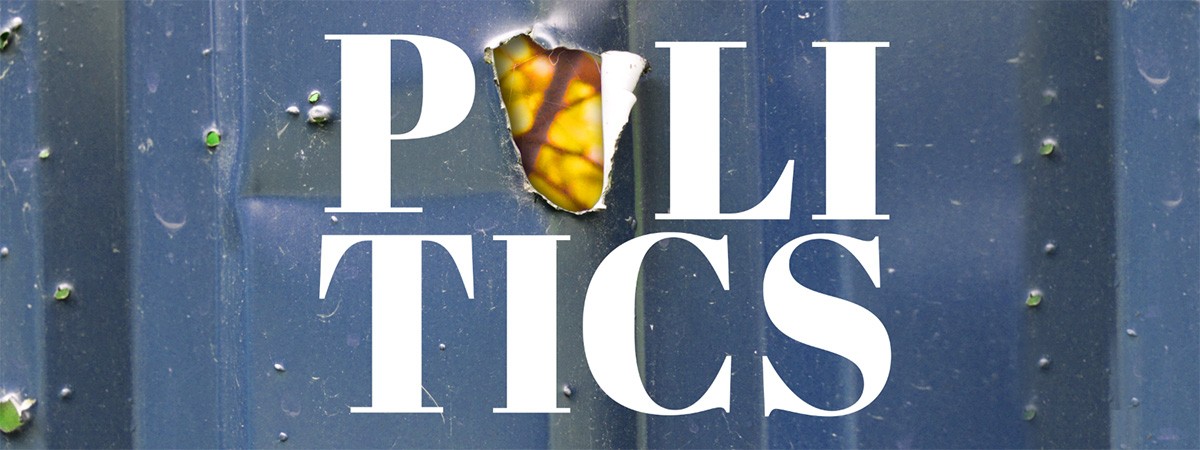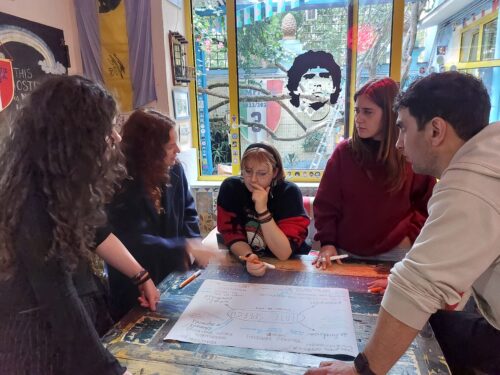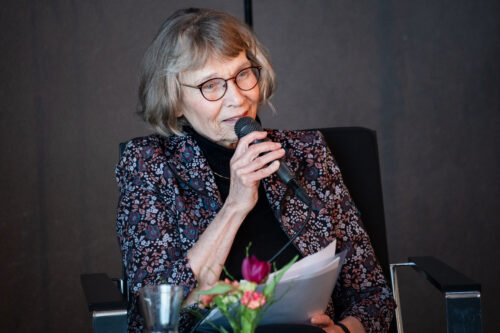Professor Richard Sakwa suggests that the only condition to establish peace and safety in Eastern Ukraine would be under very intense international supervision and a major program of reconstruction with international financing and peace keepers there.
Professor Sakwa visited Helsinki on February 28–29 to attend the 60th birthday of Professor Markku Kangaspuro, the director of the Aleksanteri Institute research centre, University of Helsinki. We interviewed Professor Sakwa, whose book on Ukraine was published in Finnish in 2017.
RUSSIA AND ROOTS OF CURRENT CRISIS
In 2015 Richard Sakwa assessed the deep roots of the Ukrainian crisis referring to mishandling of Russia by world powers in the post-Cold War era as one of its major reasons. Sitting in a hotel lobby in Helsinki five years after that, he states that nothing has changed either in world politics or in his take on it. He states, “I have always argued that the Ukrainian tragic crisis in all its multiple dimensions is a symptom of a larger failure in the end of the Cold War. It was already clear at the end of 1991 that certain issues needed to be resolved, above all with Crimea. I said it in 1993. And I say it now.”
Professor Sakwa is confident that one of the deepest roots of the current crisis is the failure to “establish a working peace order after the end of the Cold War. The logic of enlargement has taken precedence over the logic of transformation. The French-German peace order is proof that people can do it, and the whole European Union is testimony to the way that historical grievances can be transcended.”
Sakwa argues that after 1991 the West “failed to bring Russia in although it waited and wanted it. The idea that Russia was a defeated power now like Germany or Japan after 1945 was clearly a misapplication”. He points out that “the Atlantic powers certainly did not plan to keep Russia out. In 1997 – Permanent Joint Council. Then in 2002 the NATO-Russian Council. But the deal was bad: okay, you can join us but we will do whatever possible to weaken you.” From the very first words there were plans to bypass Russia: “We never trusted it ultimately.” Answering the remark whether all that happened afterwards proved that mistrust was justified, Professor Sakwa says: “It is difficult to say which is the cause and which is the effect. That is my position and I stick to it.”
UKRAINE
Professor Sakwa is certain that it is necessary to establish a framework in which Ukraine can develop as a successful sovereign independent country and we want it to happen to all those countries which have the logic of competition, logic of competing regionalisms, which led to the catastrophe of 2014. He is one of those who strongly argue that Ukraine should be a constitutionally multilingual country: “It should be applied to Ukrainian and Russian, of course, but also to all languages of ethnic minorities. They can do it in Canada and Finland. We have done it in Wales. Obviously it includes encouraging teaching of the Ukrainian, too. And there can be a national debate about the level at which Ukrainian should be studied. But at the same time Constitutional multilingualism should be maintained and it is a catastrophic failure not to achieve this that has provoked so many deleterious consequences.”
“Ukraine was generous in 1991 to offer citizenship to all living in Ukraine. I think it was a great move, unlike in Estonia and Latvia. But later on, Ukrainian neo-nationalists adopted the Latvian/Estonian model of state-building. And it is catastrophic. Ukrainian state-building was seized by Ukrainian neo-nationalists. Obviously, from Galicia. The Galician side of things.”
According to the most recent poll by the Kiev Institute of Sociology, up to 73% of Ukrainians support the right to study in Russian either all through the country or in the Russian-language regions (33% are for granting the right to study in Russian all through the country and some 40% are for education in Russian in specific regions).
Commenting on these data, Professor Sakwa tells that “in the current Ukrainian context it is almost revolutionary. But this is just a normal practice. I, by the way, support multilingualism in Wales. Schools in two languages? Great. And if they have somewhere some other language, it should also be included. I would like to see it. This is the post-war development. And Ukraine decided the opposite, which was catastrophically supported by the West, by people like Zbigniew Brzezinski and so on. They pushed for the conflicts arguing that if Ukraine and Russia were united, then Russia would become an empire again. Both Russia and Ukraine fell into that trap they didn’t need to.”
HOW TO DEFINE THE ARMED CONFLICT?
Professor Sakwa insists that the conflict in Donbass is a civil war with many other dimensions. He notes, “Russia did interfere in a big way in Ilovaysk in August 2014 and Debaltsevo in February 2015. There had definitely been volunteers before as well. But we know that Putin was very cautious not to get deeply involved. The referendum in May 2014: he was definitely against holding it. But the situation got out of control. What I do find unforgivable and I say it openly: it is the way Poroshenko launched the war. We had April 2014 discussions in Geneva, all talking about ceasefire. But inside Ukraine the situation was highjacked by neo-nationalists. And so started the war, that ATO, against his own people. I believed that Donbass should be returned to Ukraine with a measure of autonomy. As per Minsk, there was nothing unusual about that. Italy, UK, including Wales, provide all the possibilities. But Poroshenko instead, launched a savage violent culture and military war on Ukrainian people. This was accompanied by cultural denigration, calling them ”sovki”, ”colorados”… Dreadful. This is an internationalized civil war. This is how I define it.”
WAYS OUT
Professor Sakwa thinks that the Minsk Agreements are clear about their goal of Donbass returning to Ukraine. This is the view which he personally has always supported. However, he warns of a deepening gap between areas affected by the conflict and the rest of Ukraine: “Talking to people in 2014 and now, I see the huge difference. Back then they considered themselves Ukrainians as well and as much. But now, after six years, it has changed. The wound is too deep and severe, they tell me. If they are just pulled back and tied to Ukraine, they will be plunged into the fear of repressions, cleansing. And the majority of civilian casualties are on that side. The damage is irreparable.”
Professor Sakwa suggests that the only condition to establish peace and safety would be under very intense international supervision and a major program of reconstruction with international financing and peacekeepers there. He also envisages some undetermined transitional period under a special administration to deter human rights violations from happening.
”Neo-nationalists” and their control over Ukraine.
Professor Sakwa anticipates serious negative consequences for Europe in the crisis in Ukraine, especially with regard to the rise of the far-right with obtained military experience and international connections: “We saw that in the meeting in December of the Normandy Format. Zelensky took Avakov there as some guardian. And Avakov was a sponsor of Azov Regiment and cooperated to bring them into the National Guard.” Professor Sakwa warns against any support to such groupings which are antithetical to European values.
Sakwa points out that President Zelensky got a huge popular mandate, a huge majority in the parliament. Yet, his government seems to be held hostage by neo-nationalists and worse. Effectively, it limits Zelensky’s scope for maneuvering. It is very dangerous that the popular mandate is held hostage to the extremist elements rather than Zelensky, who was elected on a peace platform: “If anyone comes to power and says, ‘Look, I will bring peace’, he will definitely get my vote”, says Sakwa. “But, of course, he would not be up to achieve it, because of being held hostage. The internal political contradictions within Ukraine prevent the solution to the conflict.”
Professor Sakwa is confident that this situation could be influenced if Zelensky got a clear sign of support in case he dared to oppose neo-nationalists. “One possibility might be to have a Five Power Summit because Ukraine is a symptom of a much larger conflict, and it feeds that conflict. I think all sensible powers should be there, with Germans, possibly instead of the British. US, Russia, maybe the Chinese, although they don’t want to be involved. But what can Zelensky deliver? Nothing. Because of Avakov and because of the National Guard.”
Professor Sakwa is sad that “the dreadful Mirotvorets list of ‘enemies’ is still active while the West is doing nothing to stop it despite obvious threats of violence.”







